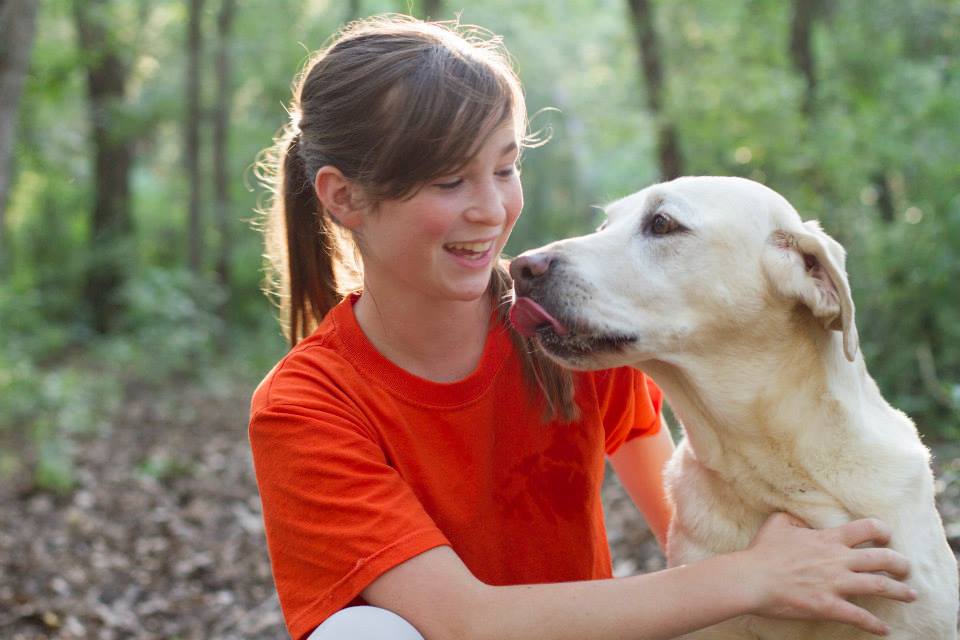
Jumping Up to Say Hello
...Dealing with excited greetings.
Trainers will often hear clients say, “He always jumps on me at the door". ...Or, "He knows better. He knows he’s doing the wrong thing". ...And my all-time favorite, "When he jumps on me, he’s just trying to be dominant”.
When we break these scenarios down, they quickly fall apart. “He knows better…”. Then why doesn’t he do better? Doesn’t “better” mean that if he had an option that HE KNEW was really BETTER, wouldn’t he choose that better option instead?
To understand over-excited greeting, let's look at dogs meeting dogs. If you watch a dog meet another dog, it will often curve its body in a c-shape and lick the greeted dog on the muzzle. Sometimes when the greeted dog responds with a growl, or a "snark", the greeter will become obnoxious, frantically graveling. Dogs are on four legs, but people are bi-peds, which means a dog has to rise up to greet our muzzle. Our reaction is to push the dog away and down, (The Human "Snark") which often causes a counter jumping assault. Afterall, if the greeting wasn’t received right the first time doesn’t that dog, who always wants to please us, just try harder???
This brings us to the emotional part of jumping. It AIN'T about dominance! The illustration above is submissive by the very nature of the greeting. Think of your greeting interaction with your young puppy. We’re tall, and they’re short. We meet them half-way, which for a puppy, may just be knee level. They are SO cute at that young age. Each greeting is a smorgasbord of jumping reinforcement. Fast forward to seven or eight months of age. “Cute” has left the building. The new blouse gets mud all over the front, or that new dress shirt gets torn. My wife has this great saying, “Anytime your dog is with you it is learning something”. Did we teach our puppy to jump? Even worse, did we ingrain a behavior that is wrapped in a whole physiological response? Did your dog grow up thinking that that type of greeting worked, as in, "I survived the greeting"? I’ve interviewed thousands of dogs…None of them ever responded verbally, but their behavior still speaks volumes.
If you try to punish this away, the result is likely to be a more anxious greeting which can lead to a frantic increase of jumping or a dog that completely gives up on greeting. Both are evidence of a DING to relationship. In the rare case that it does work, trainers take it as a “gospel” method, even though the fail rate far exceeds the success rate. On the other hand, those trainers that teach clients to ignore the behavior and it will go away on its own, didn’t fare any better. How can that be…If you are ignoring it, you are removing reinforcement, right? Wrong…The dogs keep jumping. Reinforcement still comes in the dogs’ successful completion of the greeting behavior. It becomes a self-reinforcing behavior. Don’t forget that we don’t get to decide what is punishing and what is reinforcing…Your dog makes that decision.
So, what do we do? First, WE MAKE CHANGE HAPPEN…We change technique, we change the timing and placement of reinforcement, and we change the environment. If reinforcement or punishment strategies aren’t working, we do something new. How about reinforcement that changes the emotional response that makes a dog feel like it needs to jump in the first place? How about a reinforcement strategy that puts a dog into a very cognitive part of its brain, affecting the dog’s excitement level to a calmer state? …And…How about addressing the problem before the dog is in the location where the jumping always occurs. Then once we have a trained/conditioned behavior, (both physically and emotionally)we re-introduce the dog to the “scene of the crime”, but with both the skill and the mindset to change the old behavior in the old environment.
Guess what…We can show you how to make these changes.
LOCATION
All Rights Reserved | Canine Connection, Robert W. Deeds, Karen A. Deeds

